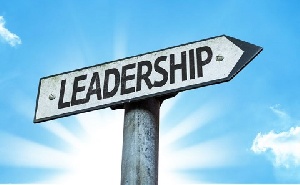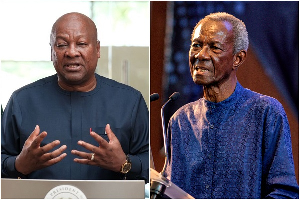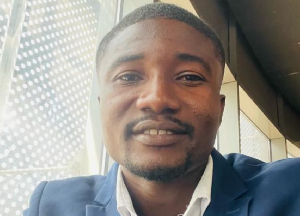I have come to realize that true leader are actually identified during periods of crisis. The difference come to bare when I look at how best they prepare ahead of time in mitigating a prevailing crisis. I learned from my parents at a very tender age that, it is always good to prepare for any eventuality.
Preparation for eventualities is a leadership trait called foresight. A Leader with foresight prepares ahead of time by putting structures in place to remedy unforeseen events. Processes and procedures are well spelt out to help prevent or resolve possible cases as they occur. It involves the remarkable ability to plan, organize, seek wise counsel, communicate, monitor and control processes efficiently.
To start with, the need for training of people, provision of logistics and equipment falls under a leader’s planning skills and organizational abilities. Planning helps the leader to know what is more pressing in getting his priorities right. While the organizational skills of a leader deals with how logistics and equipment are distributed to needed persons or organizations. A leader’s ability to monitor and control chiefly depends on how logistics and equipment are put to good use without favoritism. These skills of a leader leads to efficiency, effectiveness and economic use of resources.
Another important quality of a leader is the ability to communicate his intentions to various stakeholders just in time. Therefore, communication of intentions shouldn’t be a form of words to play on the needs of followers to believe and just to create a cult of followers without remedy to the existing crisis.
It must be noted that, fighting crisis requires a system that is not developed in a blink of the eye but rather, a system that has taken years of investments in people, systems and capacity building. These initiatives only take a leader with the afore mentioned qualities to lay down structures and infrastructures to achieve a remarkable level of success.
A Leader During Crisis Management
A leader is mostly expected to prevent crisis from happening with his/her leaderships qualities. However, if the unfortunate happens, it is expected of every leader during crisis management to act and respond in a manner that will be in the interest of the general populace, even if it will affect them (the leaders) personally. These sacrifices made by leaders form the core Spirit of Leadership.
During crisis, a leader is not expected to underestimate the crisis by their actions or inactions. This is where wise counsel is needed. Counsel from experts should be deemed as precious minerals and therefore shouldn’t be overlooked. Due diligence is desirable in the implementation of such counsel and needs to be applied to the latter. As much as a leader is not expected to underestimate the crisis, exaggerating it without proper measures shouldn’t come into the picture else the three dimensions (the breadth, depth and length) of the problem will be played down.
Moreover, there is no need for waiting “patient is not a virtue if you sit back and wait”. A stich in time saves nine. Therefore, why should a leader wait for a letter of miracle before s/he acts?
As much as “the joy of living is the joy of giving”, that should not be a means for aggravating crisis which could result in fears. As posit by Robert Schuller “fearful people reflect hatred. Hatred and anger only aggravate the problem. They are not positive reaction and they will not help solve the problem”. Hence, leaders are not expected to aggravate crises but rather find constructive means to curb the emerging predicament.
Lastly, a leader should live an exemplary life by taking charge and control of a situation. In doing this, the leader shouldn’t be quick to point accusing fingers or shift blames when s/he need to take charge and control the situation. Taking charge only means accepting and examining every vital information with the eagle eyes instead of brushing it aside. Taking control also deals with putting measures in place to address the current situation.
To conclude, leaders of our days should not be fire fighters rather, should be leaders with right priorities.
Obed Annan Nortey
Lecturer, Economist and Social Commentator
Department of Business Administration
Blue Crest College
Opinions of Thursday, 23 April 2020
Columnist: Obed Annan Nortey















